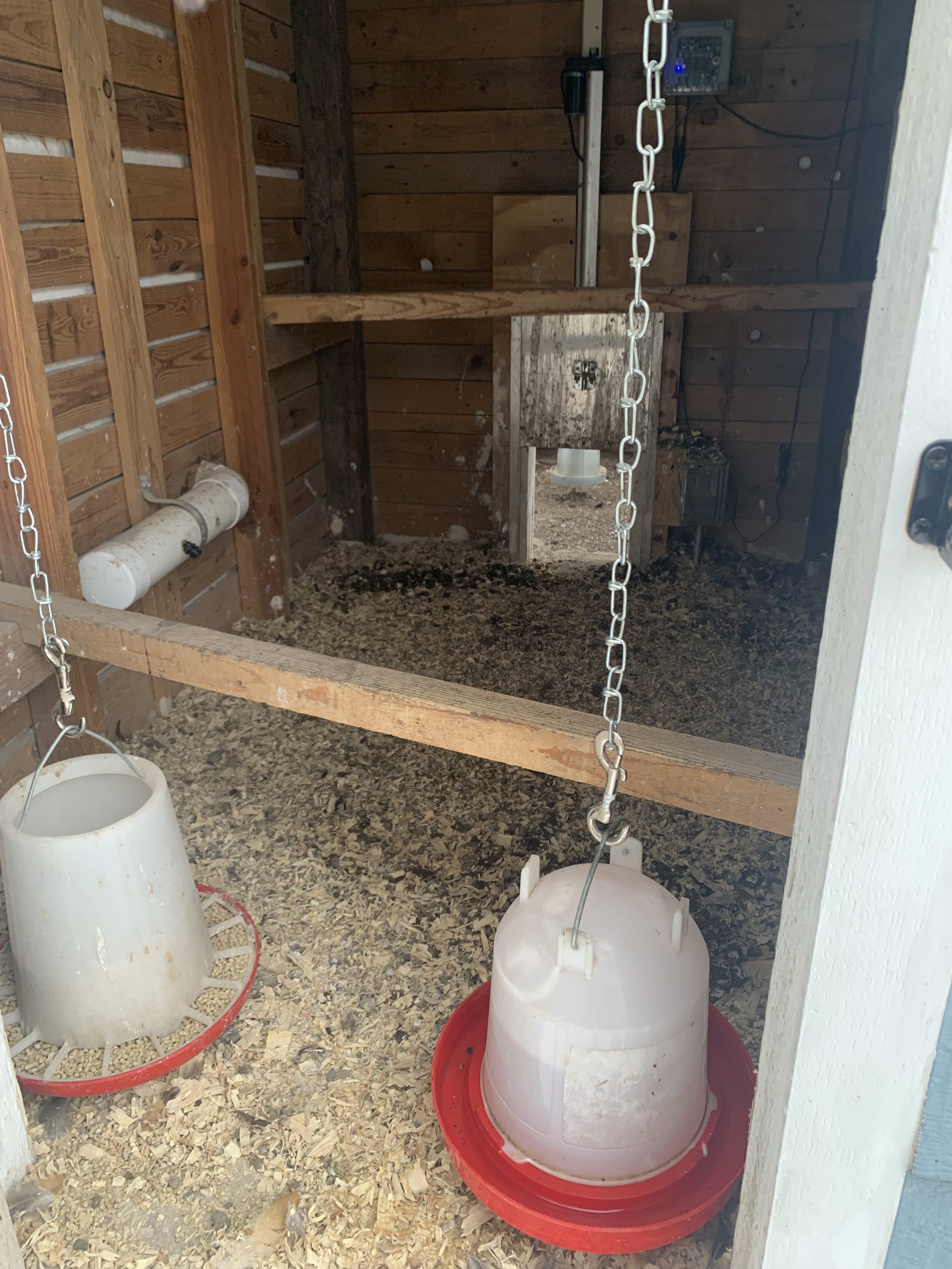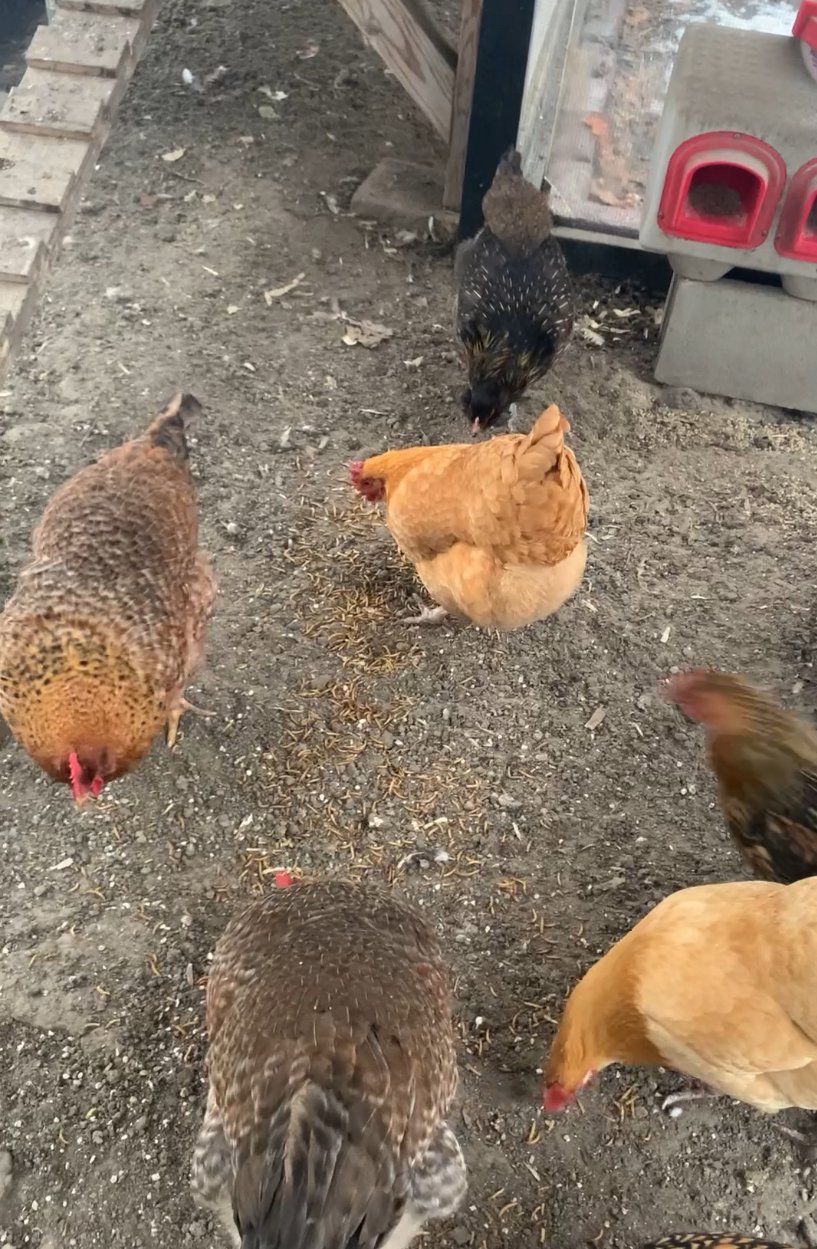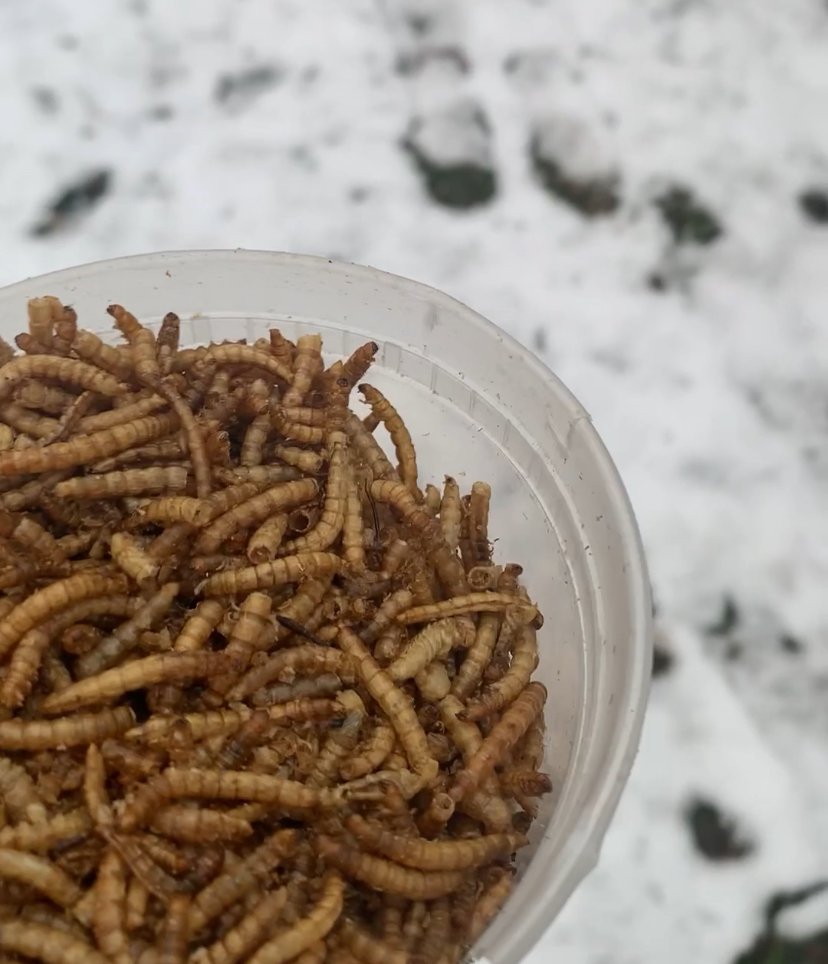Winterizing the Chicken Coop and Run
I live in the midwest, zone 5b. We have a solid 4 seasons including freezing temps and snow. It is not polar cold temps but most years we have months of freezing temperatures and accumulating snow. We do not heat our coop but we do take some steps to provide our ladies (Hens) with the most comfortable environment we can.
1. Deep Liter Method- Or our version of this method. We clean out the coop completetly a few times a year, but we do not completetly clean out the coop during the cold months. The chicken poop actaully adds a layer of warmth for the girls. We will just sprinkle food grade diatomaceous earth on top and then a layer of clean shavings. We will do this as often as necessary to keep things feeling clean. If there is a large amount of poop in one area, like under one of the roosts, we will scoop that out. The coop never smells and actually the bedding doesn’t really build up too much because it breaks down over time so when we do a complete clean out in the spring, it is like gold for my compost bins. There are a lot of other tutorials on this, but it isn’t rocket science. The chicken poop just compost over time as long as you keep the bedding dry and continue to add more clean bedding on top. If their water spills then we will be forced to do a complete clean out because you do not want wet bedding in the coop with the chickens.
2. Plexiglass- We put up plexiglass around our covered outdoor run. We do leave a few sections open to allow for ventilation because we don’t want to shut in the run completely. We try to focus the plexiglass toward the front of the run and under the coop so they always have an area to go to keep out of the wind which is a big factor for the chickens to keep themselves warm. This also helps to keep the snow from blowing into the covered run. Sometimes the chickens do not want to step on the snow although our current flock will venture out throughout the day. They don’t want to stand in snow all day. Chickens do regulate their body temps through their feet so just like on really hot days when we will put out some shallow cold water baths for them to stand in, we don’t want them standing on wet cold ground all day either. Since the temps have dropped and we got out first snow, we noticed the girls mostly staying in the covered run. They will sit together to stay warm and just periodically take walks around the yard before going back inside.
3. Water- Chickens need water (and food of course). We do not have a heated waterer. We prefer to take warm water out to the chickens. So we take a bucket of warm water out to the run each morning to fill a shallow bucket we keep in the run. The large automatic waterer freezes when it is very cold so they can’t use this and need us to bring water to them. We also have water in the coop and depending on how cold it is, sometimes we just need to break the ice a bit and allow the water to come into the bottom dish and other times, it freezes solid and needs to be thawed inside and refilled with warm water. This is the most labor intensive thing we do for our chickens. We have automated most of the care process but when it is cold, they need water 1-2 times per day. We may consider getting a heated waterer at some point. However, we want to check on them every morning when it is cold and several times throughout the day so it is not a big deal to take them water.
4. Extra food- So we feed our laying hens a pelleted layer feed formula. I prefer to buy organic feed if I can get it. They always have access to plenty of food. We also give table scraps and left over sliced fruit, lettuce etc throughout the year but especially in the winter. I will give black oil sunflower seeds and dried worms to make sure they have plenty of fats and protein to support their metabolisms. When you are cold, you burn a lot more fuel so the calories ingested need to go up as well. Also at this point of the year, there will not be any worms or grubs for them to scratch up so we need to supplement that will extra treats.
Chickens will grow a winter set of feathers as long as you have not heated the coop along the way. Their bodies will provide the insulation they need. If you have chickens, and they have been in a heated coop, you have to continue to provide that for them throughout the cold season. By falsely heating the coop, you have not allowed nature to take its course. Just keep that in mind. Of course in some environments, heating may be necessary. Our chickens are also breeds well suited for northern climates. Make sure when buying or taking in hens, that you check to make sure their breeds are suited for your climate. We find that they manage really well with these few additions and otherwise if they are cold, they will huddle close together out of the wind. They sometimes even stay in the coop a little past the time the door opens and wait for the sun shine. They are pretty smart and intuitive that way. Checking them more frequently is also a good idea. Making sure they look well, are coming over for snacks, drinking water etc.






